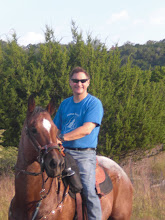A skill is the ability to
do something well that arises from finesse, adroitness, and experience. There are 20 basic skills available to
characters. Not all skills are
available to every character vocation, and your game master (GM) might
allow or create skills not described in this chapter.
Total number of skills
acquired by a character may not exceed the average of his current level and his
intelligence score. All skills require
time for training (about four
weeks for swimming and one year for scroll)
whether formal or self-taught.
A character’s skill rank in a known skill is based
upon his current level within his vocation or class regardless of when he
acquired the skill. Admittedly, this is not a realistic approach, but this method greatly facilitates ease and
speed of play. Skill checks and saving
throws are made against a Difficulty Class (DC) whose value is determined by the GM; often DC =
10 + current encounter level.
DC Description
8
Easy
10 Routine
12 Hard
15 Challenging
18 Impressive
24
Formidable
30 Preposterous
40
Impossible
When
rolling skill checks, ADD
character’s Key Ability modifier, skill
rank, and Armor
Penalty and other GM/ situational modifiers to the die result.
To succeed with a skill throw; the result of your die
throw plus skill rank plus key ability modifier must exceed the assigned
DC.
If the total is exactly equal to the assigned
difficulty level, the character succeeds at the task, but with minor
reservations as determined by the GM (usually you drop
an item/ piece of equipment; aka evidence).
If this total is less than the assigned difficulty
class, the character fails at the attempted task without injury or negative
consequences.
A newly-generated 2nd level PC selects one (two skills iff criminal) skill allowed to his vocation. AFTER each game session, a skill may be
increased either randomly or by player choice as determined by the Experience
Table (p.19). If
a character rolls a skill that he already possesses, the character may opt
to be cross-trained.
Cross trainING allows a character to select
a skill not usually allowed to his class (p.45). Skill rank is calculated in the usual manner;
however, cross-trained characters roll d12 instead of d20 when determining
skill resolution. To distinguish between class OR
RACE skills and cross-trained skills
on the character sheet use Capital and small letters, respectively.
Certain races have an natural
aptitude with certain skills as indicated on Table 6.1. To reflect this natural or innate ability,
when that character is cross-trained with the designated skill, he rolls d20
for task resolution. One still rolls d12
for task resolution with a racial skill when making an untrained check.
A character’s skill rank is zero for those skills in
which he has received no training. Regardless of whether a skill belongs to a
character’s class or racial allotment; if a character is attempting to use a
skill which he is not trained with, then to determine outcome; roll d12 ADDing appropriate Key Ability modifier, and Armor Penalty and situational modifiers
to the die result, but skill rank equals zero.
concentration: If a character allots sufficient time (1 xat), removes his helmet, and acts in a prudent manner, roll
2d10 instead of the d20 for skill
resolution. If using a cross-trained or
untrained skill, then the character would roll 2d6 instead of d12 when concentrating. If character is injured during the same time
period he is attempting a skill throw, then DC is increased by the number of
hit points of damage received while attempting the task or skill.
Red Planet has greatly simplified
character generation; therefore, there
are no modifiers to skill throws
based upon species. The character’s
race and class determines which skills are available without the cross-training
penalty (d20à d12). There is
no need for multi-classed characters or switching classes as it is easy for
players to customize their player
characters (PCs).
miniatures from REAPER
painted by MidwestMiniatureGuy



























No comments:
Post a Comment